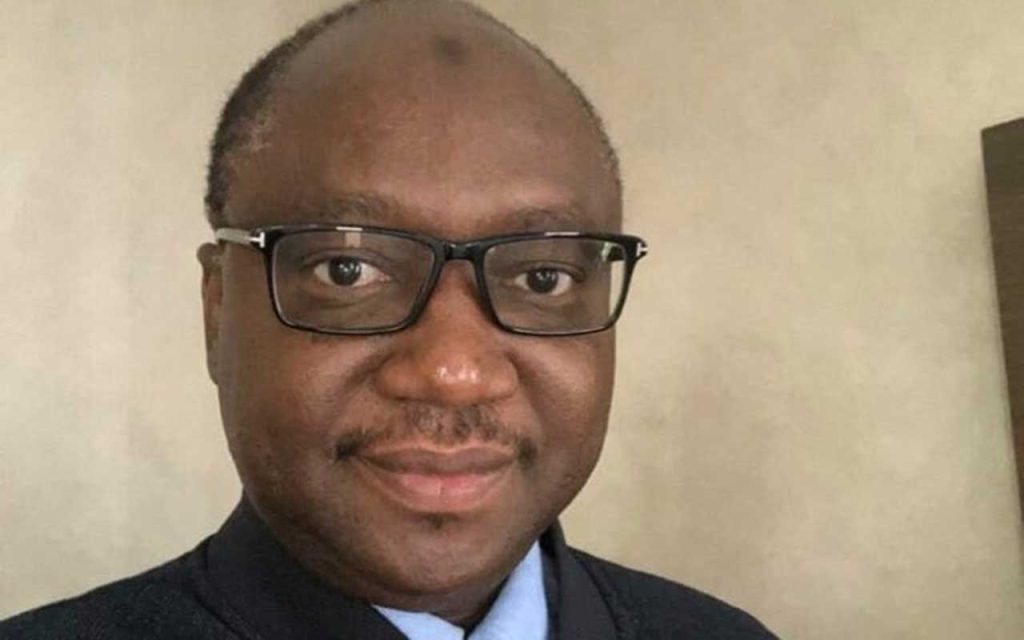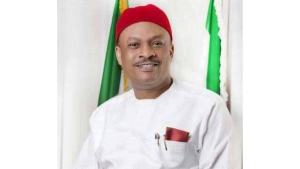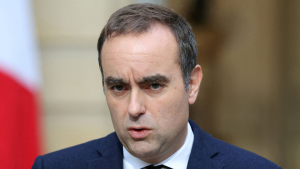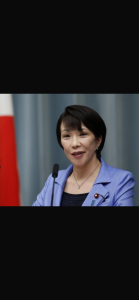
The Chairman of the Revenue Mobilisation Allocation and Fiscal Commission (RMAFC) in Nigeria, Dr. Mohammed Bello Shehu, has clarified that contrary to popular perception, political officeholders in Nigeria do not earn exorbitant salaries. He also addressed key issues surrounding the country’s revenue-sharing formula and the ongoing review of public sector salaries.
In an exclusive interview, Shehu stated that the monthly salary of a minister or the chairman of a commission is less than N1 million, which, at the current exchange rate, is less than $1,000.
“People believe we allocate jumbo salaries to politicians, but that is far from the truth. A minister earns less than N1 million monthly, and even the chairman of a commission receives a similar amount. Given the current exchange rate, this is less than $1,000. When these salaries were originally set, the naira was much stronger,” he explained.
Shehu further disclosed that RMAFC recently reviewed the salaries of judicial officers, which has now been enacted into law. The next step, he said, is to adjust the salaries of other political officeholders, including governors, legislators, and heads of ministries, departments, and agencies (MDAs).
He emphasized the need for balance in public sector earnings, stating: “No public sector worker should earn more than the President. But how much is the President’s salary? If we proposed an increase to N5 million or N10 million, there would be public outcry, yet some public officials are already earning more than that in certain agencies.”
Revenue-Sharing Formula Under Review
Shehu also addressed concerns about the country’s revenue-sharing formula, which has not been updated in over 30 years. He revealed that the commission had attempted multiple times to review the formula, but previous administrations did not implement the recommendations.
“We conducted a review during President Goodluck Jonathan’s administration, but for some reason, he did not transmit it to the National Assembly. Under former President Muhammadu Buhari, we gathered input nationwide, consulted stakeholders, and developed a new revenue-sharing formula, but it was not finalized before he left office,” Shehu noted.
He assured Nigerians that the current administration has prioritized the development of a new revenue allocation formula, stating: “Committees have been formed, and we are already reviewing the constitutional amendments made during Buhari’s tenure. Given the economic realities, a fresh formula is now necessary.”
“Nigeria Needs Stronger Leadership, Not Resource Control”
On the contentious issue of resource control, Shehu argued that allowing states to control mineral resources within their territories is not the best approach for national development.
“The Constitution is clear: just because a resource is located within a state does not mean it belongs to that state. If we allow states to control resources like oil, gold, and lithium exclusively, where would that leave the Federal Government, which is responsible for national security, foreign policy, and critical national projects?” he asked.
Instead, he urged states to focus on economic diversification and innovation rather than relying on natural resources, citing Lagos and Borno as examples of states successfully diversifying their economies.
“Rather than focusing on resource control, states should be competing in governance and economic development. Lagos is making strides in diversifying its economy, and Borno is advancing in agriculture and ranching. Other states should learn and adopt similar strategies,” Shehu said.
The RMAFC chairman also highlighted the need for stronger leadership at all levels of government to drive economic growth, concluding that, “With the revenue they receive from the Federation Account and their internally generated revenue, states have the potential to achieve much more.”
As the debate over fiscal federalism and resource control continues, Shehu reaffirmed RMAFC’s commitment to ensuring an equitable revenue allocation system that benefits all Nigerians.








